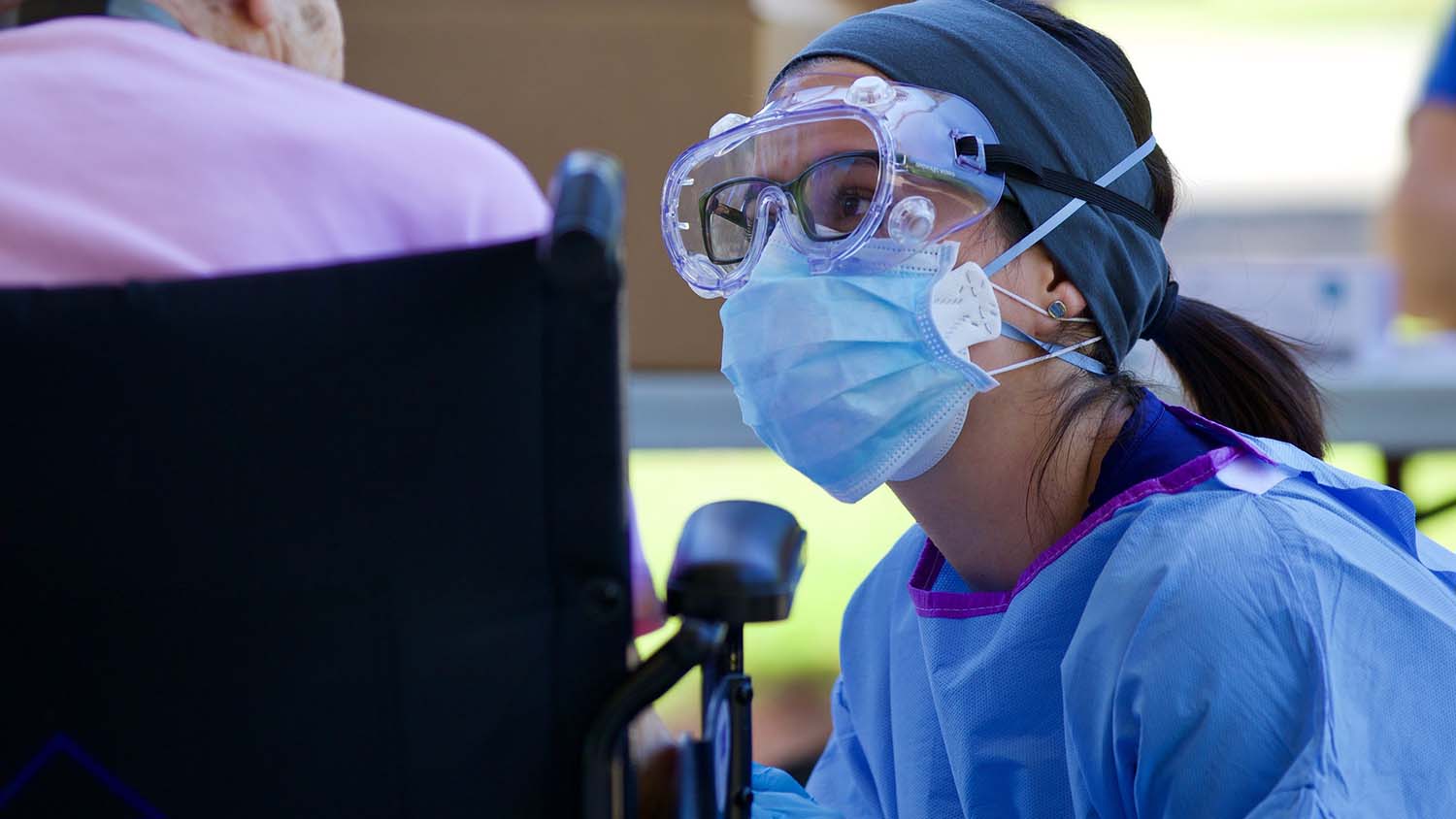Study Highlights Mental Health Risks Facing Healthcare Workers During Pandemic

For Immediate Release
A new study finds that healthcare workers in the United States are struggling with a suite of mental-health challenges during the COVID-19 pandemic. The study found that healthcare workers are at greater risk than the general public of experiencing health problems such as depression.
One striking finding is that, on average, healthcare professionals reported enough symptoms of depression to be diagnosed with clinical depression.
“Our goal was to better understand the impact that COVID-19 was having on the mental well-being of healthcare workers,” says Ann Pearman, corresponding author of the study and a senior research scientist in the School of Psychology at Georgia Institute of Technology.
“What we learned suggests that anyone who identifies as a healthcare professional – whether it’s a physician or a support worker in a hospital – is at risk for mental-health problems that could be devastating if left untreated,” says Shevaun Neupert, a professor of psychology at North Carolina State University and co-author of the paper.
“These findings are alarming, and we need additional work to better capture the scope of this problem. What’s more, we need to be thinking about how we can help our healthcare workers.”
For this study, researchers conducted an online survey of 90 people who identified as healthcare workers. While most respondents were physicians, nurses and medical technicians, some held roles such as hospital administrators. The researchers also surveyed a control group of 90 people who did not work in healthcare, but matched the age and sex of the healthcare workers. The study ran from March 20 through May 14. Study participants came from 35 states.
The survey included demographic questions, as well as questions aimed at capturing various aspects of mental health and well-being.
Healthcare workers reported higher levels of stress, anxiety and tiredness, as well as lower feelings of control over their lives.
“We also found that the healthcare group averaged a depressive symptoms score that would qualify as clinical depression,” Neupert says. “It was approximately 30% higher than the depressive symptoms score for the control group. You don’t expect to see an entire workforce score like that on a depression diagnostic tool.”
The researchers also found that the healthcare workers were less likely to engage in “proactive coping,” meaning they were doing less to prepare themselves for future stresses or adverse events.
“Our findings suggest that healthcare workers are at much higher risk right now of negative outcomes, such as depression,” Neupert says. “That’s not sustainable, and we need to figure out what we’re going to do about it.”
The paper, “Mental health challenges of U.S. healthcare professionals during COVID-19,” is accepted in Frontiers in Psychology | Psychology for Clinical Settings. The paper was co-authored by Emily Smith of NC State and MacKenzie Hughes of Georgia Tech.
-shipman-
Note to Editors: The study abstract follows.
“Mental health challenges of U.S. healthcare professionals during COVID-19”
Authors: Ann Pearman and MacKenzie L. Hughes, Georgia Institute of Technology; Emily L. Smith and Shevaun D. Neupert, North Carolina State University
Published: Accepted July 27, Frontiers in Psychology | Psychology for Clinical Settings
DOI: 10.3389/fpsyg.2020.02065
Abstract: As COVID-19 continues to impact global society, healthcare professionals are at risk for a number of negative well-being outcomes due to their role as care providers. The objective of this study was to better understand the current psychological impact of COVID-19 on healthcare professionals in the U.S. This study used an online survey tool to collect demographic data and measures of well-being of adults age 18 and older living in the U.S. between March 20, 2020 and May 14, 2020. Measures included anxiety and stress related to COVID-19, depressive symptoms, current general anxiety, health questions, tiredness, control beliefs, proactive coping, and past and future appraisals of COVID-related stress. The sample included 90 healthcare professionals and 90 age-matched controls (Mage = 34.72 years, SD = 9.84, range = 23 – 67) from 35 U.S. states. A multivariate analysis of variance was performed, using education as a covariate, to identify group differences in the mental and physical health measures. Healthcare professionals reported higher levels of depressive symptoms, past and future appraisal of COVID-related stress, concern about their health, tiredness, current general anxiety, and constraint, in addition to lower levels of proactive coping compared to those who were not healthcare professionals (p < .001, η2 = .28). Within the context of this pandemic, healthcare professionals were at increased risk for a number of negative well-being outcomes. Potential targets, such as adaptive coping training, for intervention are discussed.


